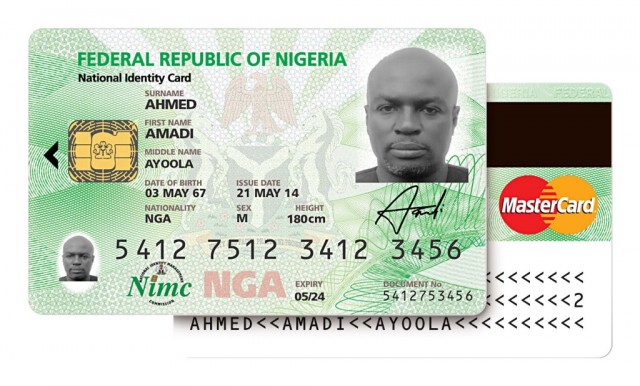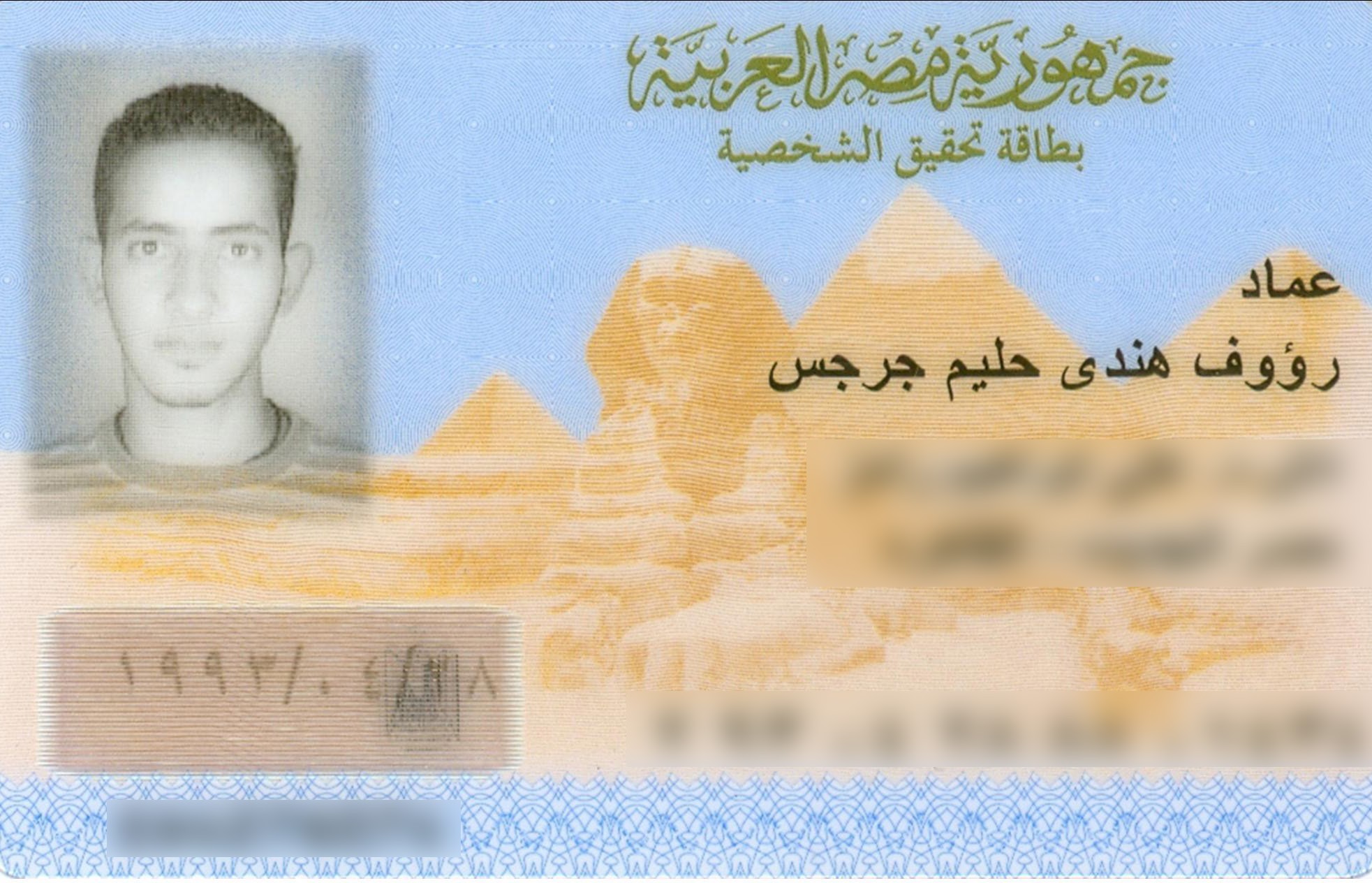
Nigeria's new national eID card.
amediaagency
Last week, Nigerian President Goodluck Jonathan was one of the first citizens to receive a National eID card, a biometric identification card that will be rolled out to 13 million Nigerians in the near future. Although a handful of countries already use biometric identification systems, Nigeria's will be unique as its pilot program will be branded with MasterCard logos. The program will eventually be expanded to encompass the rest of the country's adult population, and the BBC says that all Nigerians will be required to have such a card by 2019 if they wish to vote in the country's upcoming elections.
FURTHER READING

EGYPT WANTS DIGITAL ID CARDS FOR 85 MILLION PEOPLE
If completed, the deployment would be one of the world's largest.As MasterCard stated in a press release, the eID cards come equipped with an EMV chip that allows card carriers to access prepaid financial services backed by Nigeria's local Access Bank and MasterCard. The justification for intertwining identity documentation with financial services from a private company like MasterCard is that many of Nigeria's citizens have never set up a bank account and therefore tend to be excluded from loan qualification.
The Nigerian government says that putting a payment platform on the ID cards will eventually let citizens receive and spend money from government institutions. As MasterCard writes, “Using the card as a payment tool, Nigerians can deposit funds, receive social benefits, save, or engage in many other financial transactions that are facilitated by electronic payments with the extra security assurance that biometric verification provides. They can also pay for goods and services and withdraw cash at millions of merchants and ATMS that accept MasterCard payment cards in Nigeria and in more than 210 countries and territories globally.” MasterCard has a number of similar partnerships with government institutions in countries like Pakistan and Turkey, as well as the city of Toronto. They all use prepaid cards from Mastercard to dole out government funds.
To qualify for the new cards, Nigerians 16 years and older must provide 10 finger prints, a facial photo, and an iris capture. The multi-function biometric cards are part of an effort to consolidate all the records of Nigerian citizens, including driver's licensing, voter registration, health insurance, tax information, and national pension commission information. The Nigerian Identity Management Commission also said that the cards will eventually be able to stand in for passports when the card holder is traveling between West African countries.
Nigeria attempted a similar identification scheme a decade ago but citizens voted against it. Attendees of a recent identification forum in Nigeria speaking to TV360Nigeria earlier this summer said that the lack of reliable identification in the country was a primary concern for the future. ZDNet blogger Adam Oxford wrote that Nigeria is now the largest economy on the African continent and “the government is now keen to throw off its international reputation as a hotbed of fraud dating back to the many email-based '419 scams' that originated from the country.”
Still, combining biometrics and MasterCard branding on a required identification document concerns some. "Centralizing and combining government databases makes it easy to link together pieces of information about an individual and build a near complete picture of someone’s life," Anna Crowe ofCivil liberties NGO Privacy International told ZDNet. "This type of capability is extremely invasive." MasterCard has said that it will not have access to any of the biometric information stored on the card—only to information about financial transactions.
Biometric ID cards have been promulgated in India, but attempts to link the cards with government subsidy payments have seen significant setbacks. Malaysia and Indonesia are two countries that have made significant strides in outfitting their citizens with biometric ID cards. Two years ago, Egypt also sought to make digital ID cards the norm for its citizens, although such a plan has not come to fruition.
Credit to Artechnica.com
No comments:
Post a Comment